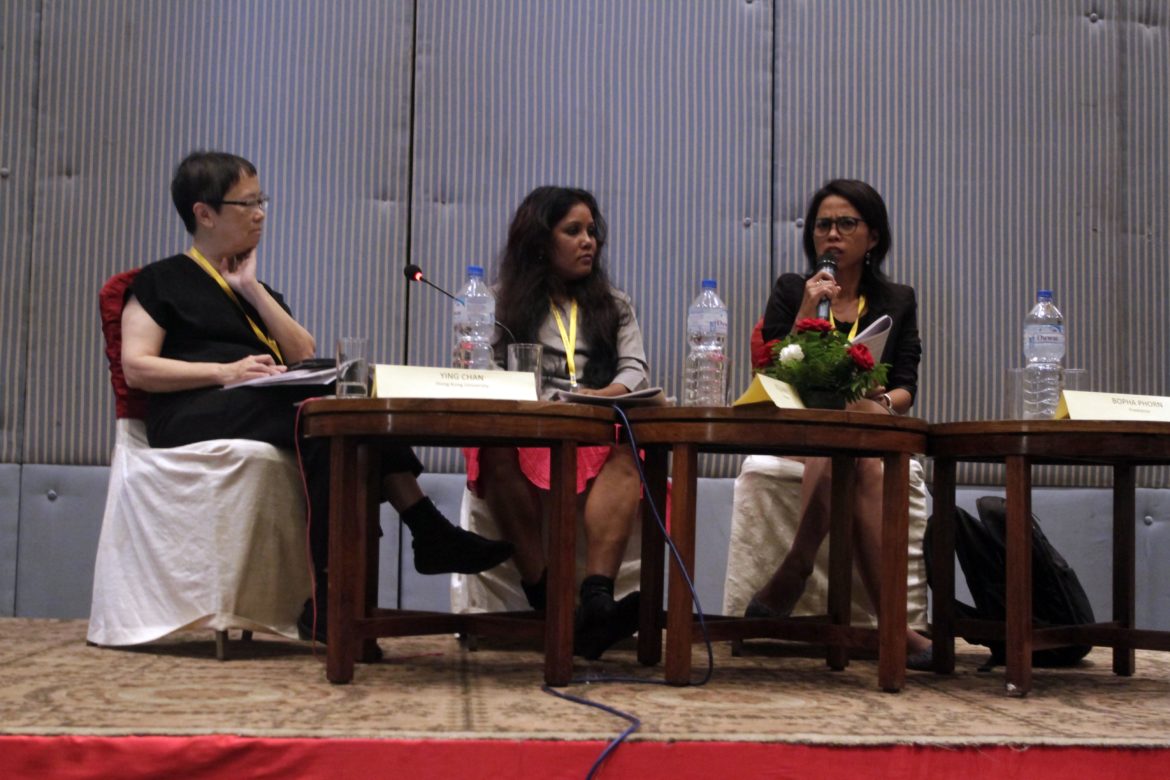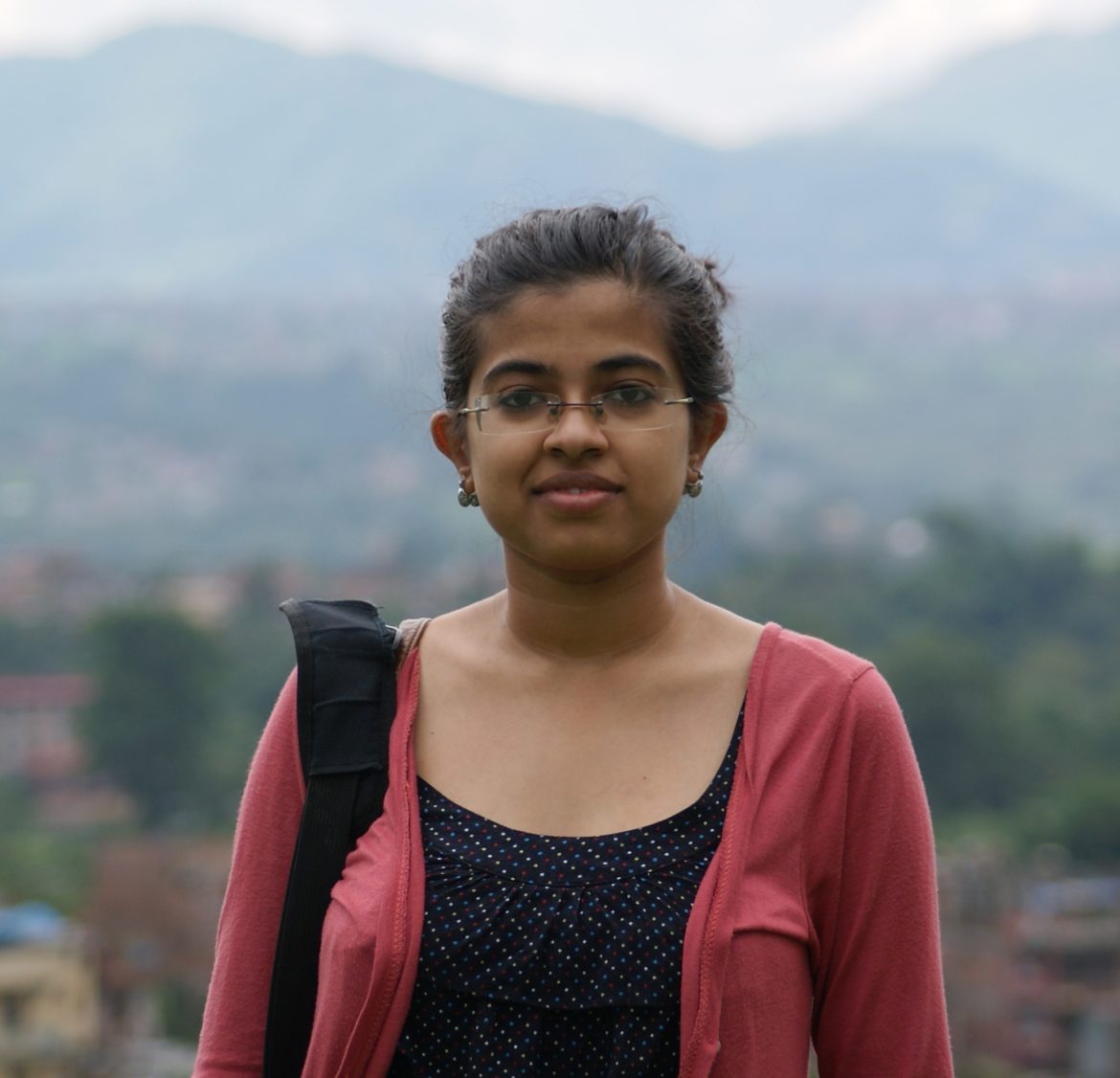
Aseem Bastola
Journalists Bopha Phorn (right) and Stella Paul (center) with Professor Ying Chan (left). Photo by Aseem Bastola.
Investigative journalism comes with well-known risks and vulnerabilities, and women often face sexual threats and harassment, both online and in the field.
“Whenever I investigate and publish stories that other people don’t want me to, I always get responses and subtle threats from high-ranking officials and ministries, which pushes me further to do the story,” said Bopha Phorn, a freelance journalist from Cambodia, at the Uncovering Asia 2016 conference in Nepal. “People always tell me to be smart and stop being a journalist.”
Stella Paul, an environment and development journalist from India, was more specific about the nature of the threats. “There wasn’t a single time when I was in the field for a story and people didn’t try to touch or molest me,” Paul said. “They think that because I am a woman, they can intimidate me.”
Cultural context can play a critical role in the level of safety or harassment women journalists face, especially in Asia, according to panel moderator Ying Chan, founder of the Journalism and Media Studies Centre at University of Hong Kong.
Indeed, Afghan journalist Sahar Fetrat, considers the consequences of covering a particular story as a female journalist. “There is a difference when a man does a story and when a woman does it. I think one of the reasons for that, especially in my country, are sexism and the male-dominated society. So if a woman was doing a story related to women’s bodies, she is putting herself in danger of being harassed more than a man,” Fetrat said.
There is no hard and fast rule to dealing with harassment, the veteran reporters said, but they did offer some advice to women on the job.
Assess the risk. “If you are facing death threats for example, it is sensible to evaluate if the story is worth it,” Phorn said. “If the answer is yes, you should consider doing it from outside the country.”
Rely on local contacts. “Make good local connections wherever you go. They can watch your back when you aren’t able to do that yourself, ” said Paul. “Understand the local situation and make the best out of it. Try to learn a bit of the local language and the people and behave accordingly. I try to be culturally appropriate when I am investigating a story because I want the conversation to be focused on the story and not me.”
Consider online safety. Women journalists particularly deal with a lot of trolling and abuse on social media, so it’s wise to weigh the pros and cons of online networking, according to Paul. “Social media definitely makes you more vulnerable to harassment but it is also a medium to make bonds and useful connections… And you have to have a thick skin when using social media. Journalism is not for the weak-hearted anyway,” Paul said.
Safety first. “You need to know whom you are dealing with in these situations. Safety and not story should be first in some of the situations,” said Chan.

Preeti Karna is a freelance journalist from Nepal and a student of Media Studies at Kathmandu University.
